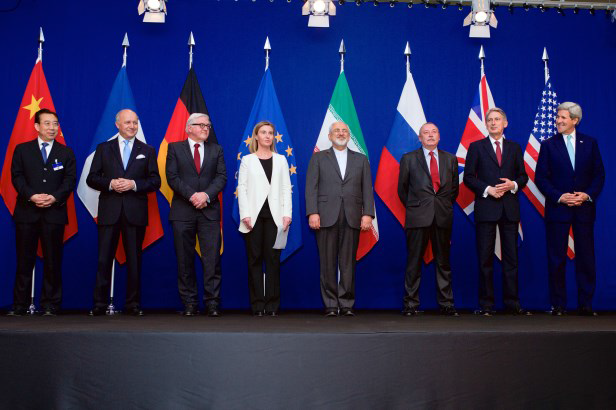MAINTAINING US-IRAN ENGAGEMENT IN A DIFFICULT ENVIRONMENT
The US decision to withdraw from the Joint Comprehensive Plan of Action is a major setback for the prospect for US-Iran reconciliation, with uncertain consequences for the Middle East and beyond. Iran will now be faced with the choice of whether to remain in the agreement or to resume or even escalate its full nuclear program. The Islamic Republic will also need to decide how to re-calculate its policy choices—whether toward collaboration with its neighbors and the world community or toward greater provocation and aggression.
The United States and the international community must understand the drivers of Iranian decision-making in order to encourage Iran’s constructive global reintegration, while at the same time effectively discouraging and responding effectively to aggressive behavior.
PROMOTING REGIONAL STABILITY AND PROSPERITY
Effective implementation of the “Joint Comprehensive Plan of Action” (JCPOA) is the necessary first step in promoting the region’s long-term stability. However, the US decision to withdraw from the deal could doom its prospects. Sustained resolve is critical to ensure that Iran continues to honor its JCPOA commitments, or, if necessary, to confront a potentially revisionist Iran.
The Atlantic Council Iran Initiative aims to galvanize the international community – led by the United States with its global allies and partners – to salvage the JCPOA and its model for conflict resolution. The Initiative also seeks to promote a deeper understanding of Iran to inform US policymakers as they formulate new approaches to the Islamic Republic.
The Initiative will provide a political safe space and a rigorously analytical point of departure in which both the most skeptical critics and the most optimistic assessors of Iran’s intentions and ambitions can work together to build a bipartisan consensus within the US and a path forward in strengthening regional and global security and prosperity.
A POTENTIAL OPENING IN THE MIDDLE EAST
After over thirty years of relative isolation and intensifying sanctions, Iran is entering a new phase in its international relations with uncertain consequences for the Middle East and beyond. The possibility of sanctions relief presents Iran with the opportunity to re-calculate its policy choices—whether toward collaboration with its neighbors and the world community or toward greater provocation and aggression.
The United States and the international community must understand the drivers of Iranian decision-making in order to encourage-age Iran’s constructive global reintegration, while at the same time effectively discouraging and responding effectively to aggressive behavior. Time is of the essence: The 2016 US presidential campaign offers a rare opportunity for a sustained public debate on America’s role in shaping Iran’s future.
PROMOTING REGIONAL STABILITY AND PROSPERITY
Effective implementation of the “Joint Comprehensive Plan of Action” (JCPOA) is the necessary first step in promoting the region’s long-term stability. However, the diverging interests of the US, European countries, Russia, and Arab states, means the plan’s success is far from guaranteed. Sustained resolve is critical to ensure that Iran honors its JCPOA commitments, or, if necessary, to confront a potentially revisionist Iran and hold it accountable to international norms.
The Atlantic Council Iran Initiative aims to galvanize the international community – led by the United States with its global allies and partners – to increase the JCPOA’s chances of success and build on its model for conflict resolution. The Initiative also seeks to promote a deeper understanding of Iran to inform US policymakers as they formulate new approaches to the Islamic Republic.
The Initiative will provide a political safe space and a rigorously analytical point of departure in which both the most skeptical critics and the most optimistic assessors of Iran’s intentions and ambitions can work together to build a bipartisan consensus within the US and a path forward in strengthening regional and global security and prosperity.

OUR FOCUS
The work of the Initiative will center around six major pillars:
US-Iran Relations
Iranian Political and Cultural Dynamics
Iranian Military and Cyber Capabilities
Iranian Relations With Its Neighbors
Implications of the Deal for the Non Proliferation Regime
Iranian Energy & Economic Dynamics after Lifted Sanctions
Members: Cornelius Adebahr
Odeh Aburene
Gen. James Cartwright
Joseph Cirincione
Ilan Goldenberg
Amir Handjani
John Limbert
Trita Parsi
Tom Pickering
Richard Sawaya
Greg Thielmann
Harlan UllmanImage: noformat
